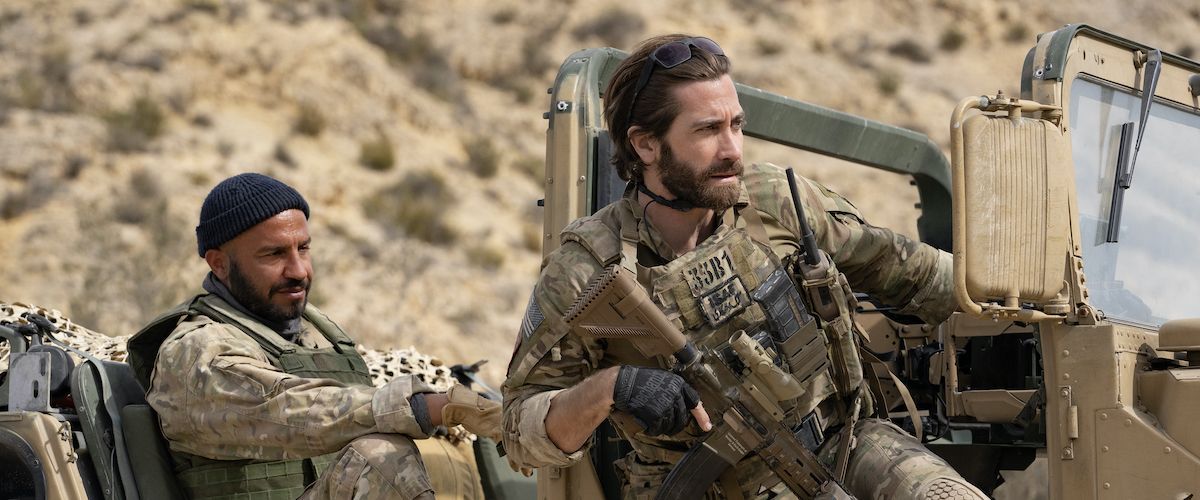Jonah Naplan April 21, 2023
The first half of “Guy Ritchie’s The Covenant” is about one man helping another man find his way home. The second half is about returning the favor. This Guy Ritchie film, even though it really doesn’t feel much like a Guy Ritchie film at all, regardless of the fact that the director’s name is attached to the title, is at heart a simple story, overshadowed by massive themes and serious topics. “The Covenant” does not follow in the same vein as most of Ritchie’s other movies, lacking the charm, banter, and snappiness of his other flicks. Here, Ritchie tries something different—melodrama paired with close-quarters thrills, matched with grisly violence from all angles. It’s all shadowed by two excellent leading performances and an overarching idea of Afghani world conflict as portrayed by a director who not only released another film last month (that of “Operation Fortune: Ruse de Guerre”), but also directed the 2019 “Aladdin” live-action remake.
In fairness, Guy Ritchie is again working with regular collaborators Ivan Atkinson and Marn Davies on the screenplay for the film, which frequently allows him to put out at least one new project a year. Some great directors don’t even release one every five. His movies don’t start to feel exhausted or uninspired after a while, because you think Ritchie (as in the world of this film) will take things in a familiar narrative direction, but then doesn’t perform as we expect.
News anchor Jake Tapper from CNN wrote and posted on Instagram about a special screening of “The Covenant” he attended this week along with Senator Mitt Romney, Congresswoman Nancy Mace, Congressman Mike Waltz, Representative Tony Gonzales, and many others, describing the movie as “a thrilling action film that also serves as a parable about Afghan translators who helped US servicemembers.” I agree that “The Covenant” is both, but found that it was often distracted by the latter.
This is a coarse, unyielding, and perspirant movie, especially during all of the Afghanistan scenes. John Kinley (Jake Gyllenhaal) is an American sergeant with a tacit devotion to his Afghan translator Ahmed (Dar Salim), but his agreement to eventually get him, his wife (Fariba Sheikhan), and small child out of the dangerous country and into America with visas is an objective that has several obstacles in its way. It’s an unspoken agreement (or a “covenant”) that the film centers on, eventually devolving into a human connection that is so much more than a simple story. At its core, Ritchie’s movie is a chronicle of two men with nothing but equity for each other, but its broader themes of Taliban terrorism, living in fear, and our country’s connection to the South-Central Asian country permeate the movie’s landscape with a tendency to become preoccupied, and eventually unfocused.
The best parts of “The Covenant” are the action and the characters caught up in it. Gyllenhaal and Salim have a spiky chemistry, and become more and more powerful dually as the film progresses, throwing increasingly heavier and heavier punches. Afghanistan is the physical manifestation of danger, and Kinley and Ahmed may as well have a big, red target painted on each of their faces, as some sort of obscure war paint. When Ritchie and cinematographer Alan Stewart lean into the battle-and-bloodshed-torn desert landscape and rocky mountain and hilltops of Afghanistan, with the shoot-’em-up nature of the gun fights, the film feels at its most muscular and masculine, overwrought with nothing but the sheer violence and grim lifestyle that comes with living in a Taliban-infested city.
The action is shot with the same, shaky-cam approach that can sometimes be distracting in most action movies, but most of it is enthralling. Sometimes the action does not involve violence, at least not until the climax. In a few instances, Gyllenhaal or Salim is riding in a truck along a dirt road, only to be stopped by roadside patrol, who then either ask for a ride from the person they’re literally searching for, or scour the storage trunk for some sort of illegal material. It’s like staring a bomb in the face waiting for it to go boom.
In terms of subject matter, “The Covenant” is vastly different from Ritchie’s other movies, but it all eventually devolves into extravaganza in the final fifteen minutes with a graphic shoot-out taking place on top of a massive dam, bafflingly defying the realism that was so essential in the first two acts. The groundedness, the pain, the sweat, and the blood, almost make “The Covenant” a heavy watch. The problem is not the inconsistency in tone, but rather the fact that Ritchie has found himself biting off way more than he can chew, providing us with a simple thriller more ambitious than most superhero movies.
That notion does still make it seem like a Ritchie piece, but ultimately, if he hadn’t stuck his own name into the film’s title, you wouldn’t know it was his picture. “The Covenant” manages to be something of a political allegory, but can’t seem to mesh its masterful thriller elements with the importance of world-weariness.
Elements of “Guy Ritchie’s The Covenant” are played as if the film is based on a true story, but it is not. The movie takes place in 2018, but text referencing the August 2021 Taliban invasion of Afghanistan fades onscreen at the end, and so do real-life photos that allude as much as they can to the idea that these events were real, without actually confirming it overtly. If this was based on a true story, it almost certainly would have been a very loose adaptation because real life is never this absurd. Ritchie is playing with fire, experimenting with carbon monoxide, and staying away from fully developed promises—his own personal covenant only sometimes holding up its end of the bargain.
Now playing in theaters.

